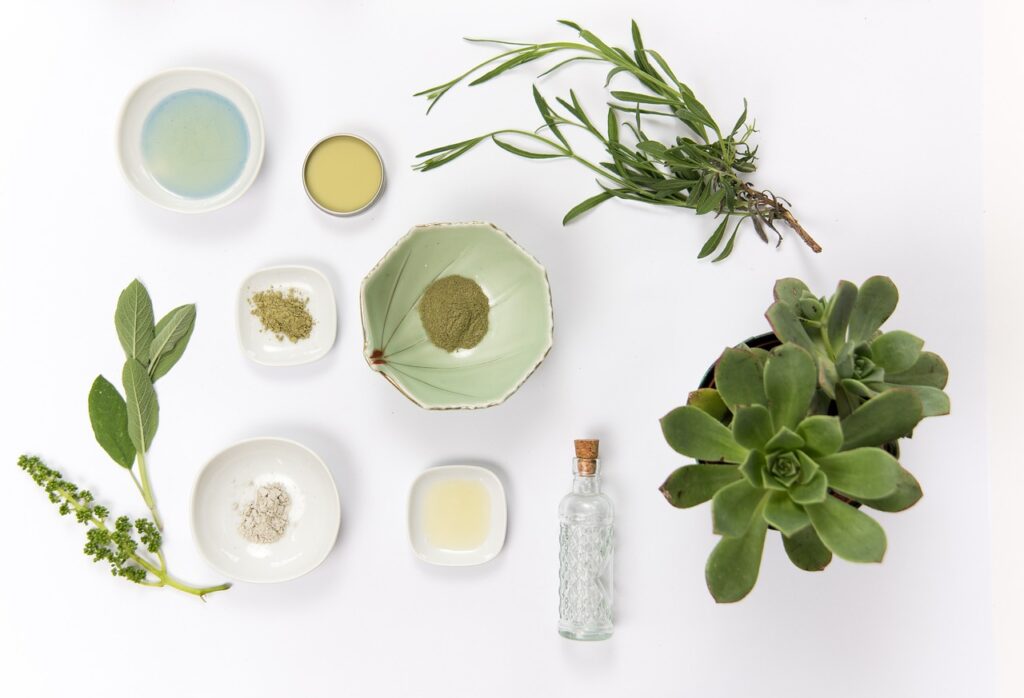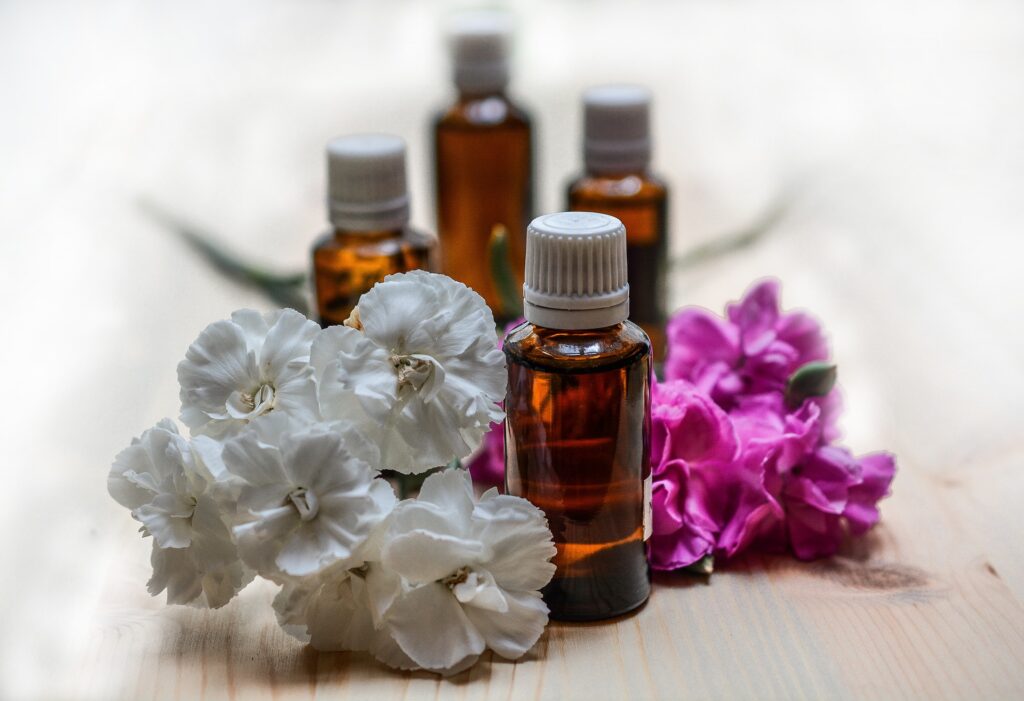
This post may contain affiliate links.
As someone who wears glasses, I understand the importance of taking care of our eyesight. In today’s digital age, it’s easy to strain our eyes with constant screen time. Luckily, there are natural remedies that can help enhance our eyesight, one of which is the use of eyesight herbs. In this ultimate guide, we’ll explore the benefits of using herbs for eyesight improvement and the top herbs you can incorporate into your daily routine.
Eyesight herbs are natural remedies that have been used for centuries to improve vision and overall eye health. These herbs are packed with essential vitamins, minerals, and antioxidants that nourish the eyes and prevent eye diseases. They are also loaded with anti-inflammatory properties that reduce eye inflammation, which can lead to various eye problems.
Using herbs for eyesight improvement has numerous benefits. They are a natural and safe alternative to prescription drugs that often have side effects. Herbs are also affordable and accessible. You can easily find them in health food stores, online, or even grow them in your backyard.
Herbs for eyesight improvement do not just promote healthy eyes but also benefit other parts of the body. For instance, some of these herbs can help reduce stress and anxiety, which can cause eye strain. They also promote healthy blood circulation, which is essential for good eyesight.
Bilberry is a small, blueberry-like fruit that grows in Europe, North America, and Asia. It’s one of the best herbs for eyesight and has been used for centuries to improve night vision. Bilberry contains anthocyanins, which are powerful antioxidants that protect the eyes from oxidative stress. It also promotes healthy blood circulation in the eyes, which can prevent age-related macular degeneration and cataracts.
Bilberry can be consumed as a supplement, as tea, or in its natural form. To make bilberry tea, steep dry bilberry leaves in hot water for 10 minutes. You can also add fresh bilberries to your smoothies or yogurt.
Ginkgo biloba is a popular herb that originated in China. It’s a natural remedy for various health conditions, including eyesight improvement. Ginkgo biloba contains flavonoids and terpenoids, which are powerful antioxidants that protect the eyes from free radicals. It also promotes healthy blood flow to the eyes and brain, which can prevent age-related eye diseases.
Ginkgo biloba can be taken as a supplement, added to tea, or eaten in its natural form. To make ginkgo biloba tea, steep dry ginkgo biloba leaves in hot water for 10-15 minutes. You can also add ginkgo biloba to your stir-fry or salad.
Eyebright is a herb that grows in Europe, North America, and Asia. It has been used for centuries to treat various eye problems, including eye strain, conjunctivitis, and dry eyes. Eyebright contains flavonoids, tannins, and essential oils that reduce eye inflammation and promote healthy tear production.
Eyebright can be consumed as a supplement or in its natural form. To make eyebright tea, steep dried eyebright leaves in hot water for 10-15 minutes. You can also use eyebright as an eyewash by adding a few drops of eyebright tincture to warm water.
Fennel is a herb that grows in Europe, Asia, and North America. It’s a natural remedy for various eye problems, including cataracts, glaucoma, and dry eyes. Fennel contains essential oils, flavonoids, and vitamin C, which promote healthy tear production and reduce eye inflammation.
Fennel can be consumed as a supplement or in its natural form. To make fennel tea, steep dried fennel seeds in hot water for 10-15 minutes. You can also add fennel to your salads or soups.
Calendula is a herb that grows in Europe, Asia, and North America. It’s a natural remedy for various eye problems, including conjunctivitis, dry eyes, and eye strain. Calendula contains flavonoids, triterpenoids, and carotenoids, which reduce eye inflammation and promote healthy tear production.
Calendula can be consumed as a supplement or in its natural form. To make calendula tea, steep dried calendula flowers in hot water for 10-15 minutes. You can also use calendula as an eyewash by adding a few drops of calendula tincture to warm water.
Passionflower is a herb that grows in South America, Asia, and North America. It’s a natural remedy for various eye problems, including eye strain, dry eyes, and glaucoma. Passionflower contains flavonoids and alkaloids, which promote healthy blood circulation in the eyes and reduce eye inflammation.
Passionflower can be consumed as a supplement or in its natural form. To make passionflower tea, steep dried passionflower leaves in hot water for 10-15 minutes. You can also add passionflower to your smoothies or yogurt.
Apart from the top herbs mentioned above, other herbs can improve your eyesight. These include chamomile, turmeric, green tea, and saffron. Chamomile contains flavonoids and essential oils that reduce eye inflammation and promote healthy tear production. Turmeric contains curcumin, which has anti-inflammatory properties that reduce eye inflammation. Green tea contains catechins, which protect the eyes from oxidative stress. Saffron contains crocin, which promotes healthy blood flow to the eyes.
There are various ways you can use eyesight herbs. You can consume them as supplements, tea, or in their natural form. To get the maximum benefits, it’s recommended to consult a healthcare professional before using any herbs. They will advise you on the right dosage and potential drug interactions.
Although eyesight herbs are generally safe when used as recommended, they can have potential side effects. For instance, bilberry can cause mild digestive problems, and ginkgo biloba can cause headaches and dizziness. It’s essential to consult a healthcare professional before using any herbs, especially if you’re pregnant, breastfeeding, or have a medical condition.
Eyesight herbs are a natural and safe way to enhance your eyesight and promote overall eye health. Incorporating them into your daily routine can prevent eye diseases and reduce eye strain. However, it’s essential to consult a healthcare professional before using any herbs, especially if you’re pregnant, breastfeeding, or have a medical condition. With the right precautions and dosage, you can enjoy the numerous benefits of using herbs for eyesight improvement.
Talk to your healthcare professional today about incorporating eyesight herbs into your daily routine for improved vision and overall eye health.
Isaiah Harris

Hi, my name is Isaiah, and I’m a passionate advocate for natural remedies and living. I believe that natural remedies can be an effective way to help people achieve better health and wellness. For the past few years, I’ve been creating content about natural remedies and sharing my own experiences with them.




